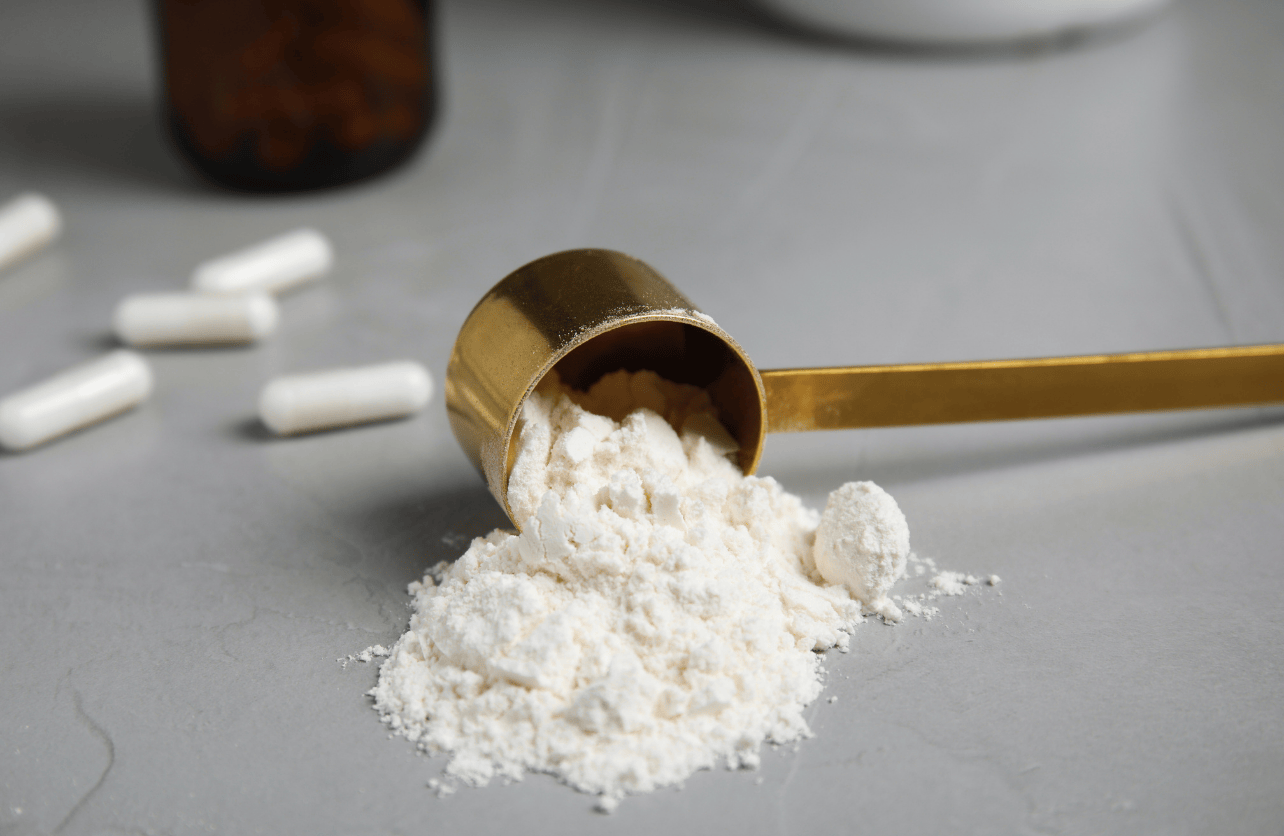Does Creatine Break a Fast? Here’s What the Science Actually Says

Fasting has exploded in popularity—whether for weight loss, metabolic health, or mental clarity. But for those who also take creatine to build muscle or improve performance, one question always comes up: Does creatine break a fast?
It sounds simple, but the answer depends on what type of fast you’re doing and what your goals are. Let’s break it down step by step, with science-backed context and clear takeaways.
What Does It Mean to “Break” a Fast?
Before we can answer whether creatine breaks a fast, we need to define what “breaking a fast” actually means. Broadly speaking, there are two common definitions:
Metabolic Fasting: Focused on fat burning, insulin sensitivity, and ketosis. Anything that spikes insulin or introduces significant calories is considered to break the fast.
Autophagic Fasting: Targeted at cellular repair and autophagy, a process where the body clears out damaged cells and proteins. This type of fasting tends to be more sensitive—even small nutrients or amino acids can interfere.
In both cases, the concern isn’t just about calories, but also about how the body responds hormonally and metabolically to what you consume.
Creatine and Calories: Does It Physically End Your Fast?
Creatine monohydrate, in its purest form, is virtually calorie-free. One serving (about 5 grams) has negligible energy content—roughly 0 to 10 calories at most, depending on additives.
Importantly, pure creatine doesn’t trigger an insulin spike or any significant digestive response. That means, from a fat-burning and metabolic standpoint, creatine is generally considered fast-safe. It won’t kick you out of ketosis or stop you from oxidizing fat.
The issue gets murkier with flavored creatine powders, which often contain sugars, artificial sweeteners, or other ingredients. These can break a fast depending on what’s added—so always check the label.
Creatine and Autophagy: A Gray Area
For those doing longer fasts for cellular repair or longevity, things get more nuanced. Autophagy is inhibited by amino acids, particularly leucine and other protein-building components. Creatine is derived from amino acids, but it’s not the same as ingesting full protein or BCAAs.
There’s no definitive study showing that creatine directly halts autophagy, but because it comes from arginine, glycine, and methionine—all of which have metabolic signaling potential—some researchers speculate it could interfere with deep autophagy.
So if you’re doing a short intermittent fast (like 16:8), creatine is unlikely to matter. But if you’re pushing past 24 hours and trying to maximize autophagic benefits, you may want to skip it during the fasting window.
What About Hormones Like IGF-1 and DHT?
Some smaller studies have hinted that creatine supplementation might increase hormones like IGF-1 (Insulin-like Growth Factor 1) or even DHT (dihydrotestosterone). Both are involved in anabolic processes—and IGF-1 is known to reduce autophagy.
That said, the hormonal shifts from creatine are usually modest and unlikely to matter in the context of a standard fast. Still, for purists who are fasting specifically to downregulate growth signals and upregulate repair, this could be another reason to time creatine around meals instead of during the fast itself.
When Should You Take Creatine While Fasting?
If you’re training in a fasted state, taking creatine pre- or post-workout might enhance performance without compromising your fast. Because creatine works by saturating your muscle stores over time, timing isn’t critical. But here’s what works best for different goals:
For intermittent fasting and fat loss: You can safely take creatine during the fasting window—just make sure it’s unflavored and pure.
For muscle retention during long fasts: It might help to take it right before breaking your fast or with your first meal.
For maximizing autophagy or longevity: It’s safest to avoid all supplements, including creatine, until the fasting period is over.
Final Verdict
So, does creatine break a fast?
If your goal is fat loss, improved insulin sensitivity, or ketosis: No. Creatine doesn’t break your fast. It has no calories, no insulin response, and won’t disrupt fat burning.
If your goal is cellular repair and autophagy during a long-term fast: Possibly. While the risk is minimal, creatine could theoretically blunt some of the benefits—especially if taken with other amino acids or hormonal triggers.
If you’re using flavored creatine with additives or sugar: Yes. Those extra ingredients can break your fast and should be avoided if you’re trying to stay in a fasted state.
Bottom Line
Creatine is a powerful supplement that improves exercise performance, supports muscle retention, and may even help with brain function. But if you’re fasting, context is everything.
For most people, especially those practicing time-restricted eating, creatine won’t break your fast—and might actually support your training goals. Just make sure it’s unflavored, additive-free, and not taken during extended fasts if autophagy is your primary aim.
In other words: Creatine and fasting can absolutely coexist—as long as you know why you’re fasting in the first place.
Building a Stronger You
Supplement Institute is the fruit of extensive online publishing experience, spanning the breadth of SEO strategies to the nuances of paid advertisements. Our journey, marked by significant achievements and learning moments, inspires our core mission: to empower our readers with an abundance of information. By sharing insights and key learnings, we aim to provide you with the knowledge needed to navigate the complex world of supplements, helping you make well-informed decisions for your health and well-being. Welcome to Supplement Institute, where information is your greatest supplement.